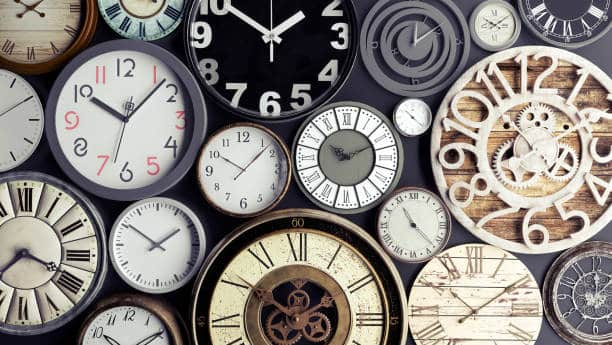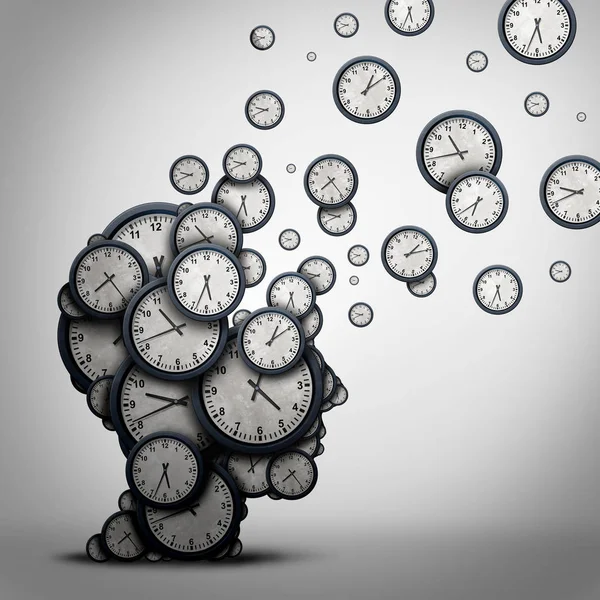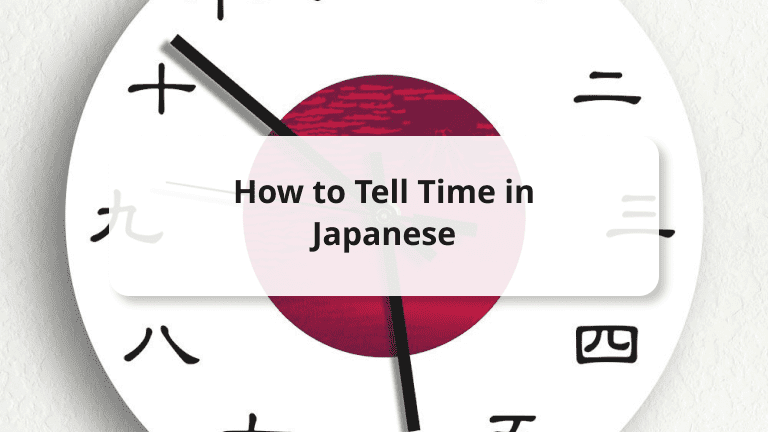Telling time in Japanese is actually simple and easy to understand, once you learn the Japanese numbers. When expressing time in Japanese, the words which indicate the hour-時 (ji) and minute-分 (fun or pun depending on different numbers) are always added next to the numbers. For example; 3:20 or “three twenty” is expressed as 3- san ji(時), 20-nijup pun(分). If you are also interested in how to start that conversation, be sure to head to our article on hello in Japanese.
Before moving on, check out this article on Japanese numbers. After you understand and can recall numbers 1 to 10 in Japanese, it’s quite simple to derive the rest of the numbers in Japanese. To form numbers from 11 to 19, you would begin with “十” (juu) which is 10 and then add the number you need. For example, Twenty is “二十” (ni-juu) and to get twenty one, just add “一” (ichi) one to it which makes “二十一” (nijuu ichi).
If you want understand Japanese numbers and counting in more detail, check this video on how to count in Japanese:
Once you understand the numbers, you must now understand how to express time with Japanese time-related vocabulary. 時 (Ji) means “o’clock” or “hours”. 分 (Fun/pun) means “minutes.” 秒 (byō) means “seconds”. To express the time, say the hours first, then the minutes, then add “desu”(です). Seconds are not commonly expressed in conversation, just as it isn’t in English – you’d sound like a computer if you did! Regardless, a table explaining the seconds is also added for your reference.
Table of Contents
Hours (時-ji) in Japanese
| Japanese | Pronounciation | English |
|---|---|---|
| 1 時 (一時) | ichi-ji | 1 o’clock |
| 2 時 (二時) | ni-ji | 2 o’clock |
| 3 時 (三時) | san-ji | 3 o’clock |
| 4 時 (四時) | yo-ji | 4 o’clock |
| 5 時 (五時) | go-ji | 5 o’clock |
| 6 時 (六時) | roku-ji | 6 o’clock |
| 7 時 (七時) | shichi-ji | 7 o’clock |
| 8 時 (八時) | hachi-ji | 8 o’clock |
| 9 時 (九時) | ku-ji | 9 o’clock |
| 10 時 (十時) | jū-ji | 10 o’clock |
| 11 時 (十一時) | jūichi-ji | 11 o’clock |
| 12 時 (十二時) | jūni-ji | 12 o’clock |
- Irregular pronounciations are colored in red;
- Four o’clock is pronounced as (yoji), not (yonji)
- Seven o’clock is pronounced as (shichi-ji) rather than 七 (nana-ji)
- Nine o’clock is pronounced as (kuji), not (kyuuji)
Minutes (分-fun/pun) in Japanese
| Japanese | Pronunciation | English |
|---|---|---|
| 1分 (一分) | ip-pun | 1 minute |
| 2分 (二分) | ni-fun | 2 minutes |
| 3分 (三分) | san-pun | 3 minutes |
| 4分 (四分) | yon-pun | 4 minutes |
| 5分 (五分) | go-fun | 5 minutes |
| 6分 (六分) | rop-pun | 6 minutes |
| 7分 (七分) | nana-fun | 7 minutes |
| 8分 (八分) | hap-pun | 8 minutes |
| 9分 (九分) | kyū-fun | 9 minutes |
| 10分 (一〇分) | jup-pun | 10 minutes |
| 11分 (一一分) | jūip-pun | 11 minutes |
| 20分 (二〇分) | nijup-pun | 20 minutes |
| 23分 (二三分) | ni jūsan-pun | 23 minutes |
| 30分 (三〇分) | sanjup-pun | 30 minutes |
| 35分 (三五分) | sanjūgo-fun | 35 minutes |
| 40分 (四〇分) | yonjup-pun | 40 minutes |
| 47分 (四七分) | yonjūnana-fun | 47 minutes |
| 50分 (五〇分) | gojup-pun | 50 minutes |
| 59分 (五九分) | gojūkyū-fun | 59 minutes |
| 半 | han | half past |
- Special considerations when you are expressing minutes;
- 分 is pronounced ”fun” or ”pun” depending on after which number it follows.
- There is no special word for quarter past, 半(Han) means “half”, as in half past the hour.
- 2, 5, 7, and 9 minutes are pronounced with “fun” and 1, 3, 4, 6, 8, and 10 minutes are with “pun”. After 10 minutes, the same pattern is used.
- Irregular pronunciations are colored in red
Seconds (秒-byou) in Japanese
| Japanese | Pronunciation | English |
|---|---|---|
| 0秒 | zero-byō / rē-byō | 0 second |
| 1秒 | ichi-byō | 1 second |
| 2秒 | ni-byō | 2 seconds |
| 3秒 | san-byō | 3 seconds |
| 4秒 | yon-byō | 4 seconds |
| 5秒 | go-byō | 5 seconds |
| 6秒 | roku-byō | 6 seconds |
| 7秒 | nana-byō | 7 seconds |
| 8秒 | hachi-byō | 8 seconds |
| 9秒 | kyu-byō | 9 seconds |
| 10秒 | jū-byō | 10 seconds |
| 0.1秒 | rē ten ichi-byō | 0.1 seconds |
| 0.02秒 | rē ten zeroni-byō | 0.02 seconds |
- Special considerations when you are expressing minutes;
- 0 before the decimal point is read (rē), 0 after the point can be either way, (rē) or (zero).
- Irregular pronunciations are colored in red
Examples
| 04:30 | Gozen(午前) yo-ji sanjup-pun / Gozen yo-ji han |
|---|---|
| 13:00 | Gogo(午後) ichi-ji |
| 14:10 | Gogo ni-ji jup-pun |
| 15:15 | Gogo san-ji jūgo-pun |
| 16:30 | Gogo yo-ji sanjup-pun / Gogo yo-ji han |
| 17:45 | Gogo go-ji yonjūgo-fun |
| 18:50 | Gogo roku-ji gojup-pun |
AM or PM?
Depending on whether the time is before or after 12, you would need to add 午前 (gozen) in front of the time to indicate am, and 午後 (gogo) to indicate pm.
Phrases for Certain Times of the day
| in the morning | Gozen(午前) |
| noon | Gogo jūni-ji / Shōgo |
| in the afternoon | Gogo(午後) |
| midnight | Gozen rē-ji |
If you want to have a deeper understanding about how to greet people and especially, good morning; our article on good morning in Japanese will definitely be a good read!
How to Say “What time is it?” in Japanese?

What is the time now? – 今何時ですか ? (ima nanji desu ka?)
But it does not end there, once you learn how to ask for the time in Japanese, you must also be prepared to understand the answer in Japanese! You would normally answer such a question of time with a response such as;
It’s 5:45 – 五時四十五分です。(goji yonjuugofun desu)
It is also important how to thank the other person so be sure to check out our article on thank you in Japanese.
Other Useful Phrases

How long does it take? -どのくらいかかりますか?(Donokurai kakarimasuka?)
You would use this when expecting a duration for something, such as ordering food at a restaurant or maybe waiting for transportation.
Today, I will go to work by train – 今日は電車で通勤します。(Kyō wa densha de tsūkin shimasu)
This is a simple expression of explaining your plan on the same day. You can use the the word 今日 “Kyo” (Today) for sentences indicating things on the same day.
I will be home by the afternoon – 午後までに帰宅します (Gogo made ni kitaku shimasu)
Remember that you can use 午後 (Gogo) as a reference point for any time in the afternoon.
Let us meet in the morning – 朝会いましょう (Asa aimashō)
You can use 朝 (Asa) to indicate a reference point at any time in the morning.
We will eat in the evening – 夕方に食べます (Yūgata ni tabemasu)
You can use 夜 Yoru / Yūgata to indicate a reference point at any time in the evening.
I will go next month – 来月行きます (Raigetsu ikimasu)
You would use 来月 (Raigetsu) to indicate a time of reference in the following month.
I visited last year – 去年訪れました (Kyonen otozuremashita)
You would use 去年 (Kyonen) to indicate a time of reference that was in the previous year.
Its time to practice with Time!

Learning how to tell the time is a crucial and daily need that we all have in life. Even if you do not know much about the time in other languages and countries, being able to at least tell the time is valuable and useful if you find yourself in different parts of the world. Being able to make reference points in time can really make a difference in some situations.
Now that you’ve learned about Japanese time-telling in this article, let us show you how to read and tell the time in other languages too! Check out our articles on time in Korean, time in Spanish, and time in French – so you can be fully competent with time around the world.
Also, if you are planning to learn Japanese online, our article on online Japanese courses will prove beneficial. Without further ado, head to AmazingTalker and choose an online Japanese tutor that will be a great fit for your learning goals!
















